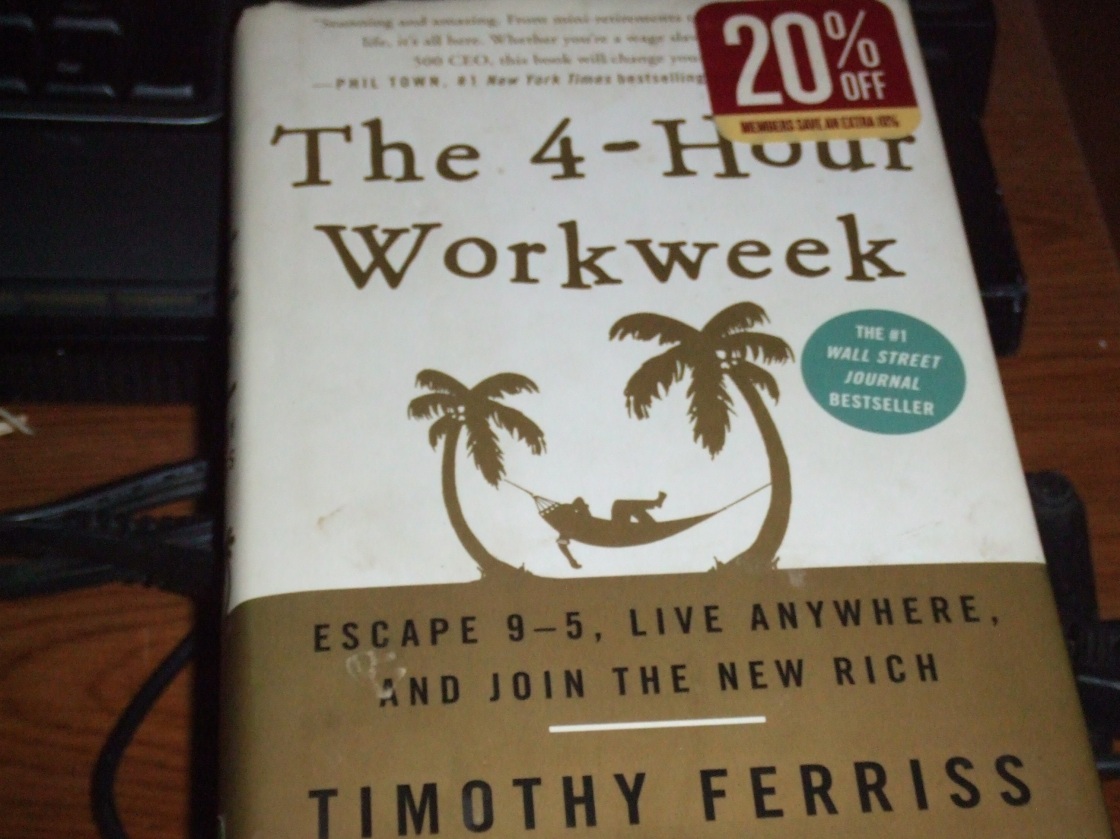I wrote this a couple of months ago, but the other day I heard remarks by Gary Veynerchuk, who I watch a little of some Monday mornings when I am starting the week with an hour of “Motivation Monday,” against the dream of a passive income. There is a Youtube video available that gives an idea of what Gary believes.
THE ONLY “Passive Income” Video You Need To Watch – Gary Veynerchuk |Motivational Rant
I already knew not to try to tell people what to say about content marketing on social media, because it’s a pointless maneuver, but I do want to refer to Gary’s position on passive income and note that his passion could be relevant to the decision to invest time in reading Timothy Ferriss’ The 4-Hour Work Week.
I have read the Ferriss book three times over the years, and I think it’s an enjoyable read, but I wanted to curate what I wrote a couple of months back with the caveat that the dream of a 4-hour work week may not be right for you.
Summer 2018
I ran into a disagreement, a stumbling block, but made a decision.
One of my uncles called me out for posting to our Facebook business page at a level above what he felt was my comprehension. I guess I was insulted, but maybe what he was getting at was true–I decided to make good on the advice and to improve my strategy for Facebook–https://www.facebook.com/LouthUnited

Being a very small page on Facebook is a hard bargain–to be competitive requires strong content, and there isn’t money to spend to drive it.
So, in the several days since my uncle’s observation, I revisited The 4-Hour Work Week for the third time.
It’s a 2007 book by Timothy Ferriss that is a how-to on putting together a life of travel and wealth, particularly in light of opportunities afforded by the Internet. This is about getting past the need for a fulltime job.

I realize 2007 is a long time ago, but it is an inspiring read if you the reader are reflecting on what you’re doing in the course of your career that might be unsatisfying for you.
I was holding down a job the second half of 2007, which is when I was feeling comfortable but uninspired. 4-Hour Work Week author Timothy Ferriss recounts how he never could keep a job, although he is well-known for doing all kinds of amazing activities, including writing the bestselling book that I read again for the third time.
Admittedly, I am comfortable volunteering at the cemetery which I feel serves a purpose, owing to its continued interest by visitors who have loved ones resting there and who find the tendered grounds a suitable destination for introspection and solace.
However, I did again to my delight find 4-Hour Work Week an impassioned read.
Ferriss argues for the importance of the spirit of independence. This is instead of job security, Ferriss arguing that work for the sake of work is a pointless grind and that you would be better traveling across the world, for example. That, he affirms, is a far better investment of time and resources, than being buried, you could put it, in the demands of what might be eighty hours of work a week.
Some of the ideas Ferris had for the book remain relevant, like targeting ads with Google to create product sales to get you out of the gate and in charge. Ads like those Internet offers remain a profitable activity for people to make money at when they have a product niche and a matching headspace that’s geared to online sales with the Internet.
Ferris refers in his book to Pareto’s Law, the concept that 20% of your efforts achieve 80% of the results you get. It is a quirky theorem that is popular in self-management circles. For example, Ferriss thought of ways that 20% of his interactions with clients produced 80% of the sales he needed–and invented methods to bring down the time spent chasing the 20% without sacrificing the 80% payoff.
While possibly hard to measure, you could tap into Pareto’s Law in areas of your own life that need expansion, while synchronously cutting back on activities that only mean spinning your wheels. Ferriss in the book explores how.
Ferriss’ ideas include avoiding taking phone calls by getting people to email you rather than call, and then to check email only twice a day, at noon and at four. This gets the most important communications done instead of letting them control too much of your time.
Most important, Ferriss finds that a life away from the office should never be about getting back to work. He believes in automating as much as possible, and you probably already know that automation is a vital time-saving strategy to everybody who’s pressed for time.
In the first few chapters, Ferriss recommends a five-day information fast–no more news sites, magazines, or books, and only an hour of television viewing in the evening instead of the several that he says most people watch. Five days of this with the help of his book and you’re on your way.
He also illustrates a Dreamline and points out some ways you can reduce your present list of expenses so that you can readily find the money to tick off some of the items you have on your bucket list.
It is a pleasant dream to think of a life like that.

If you need some tips to deal with a job that’s turned out to be soul-crushing, this book is a good source of inspiration. The writing is both insightful and easy to digest. What we do with our time is what we are, and a bit of fun and freedom might be the ingredients you need to reconnect with your purpose outside of work.
I am illustrating this post with a shot I took of my copy of the Ferriss book and also a photo of Louth United Church, on the cemetery grounds where I work in an operations capacity.
And, please, you are more than welcome to “like,” “follow,” and/or comment.
Remember, your happiness is important.
